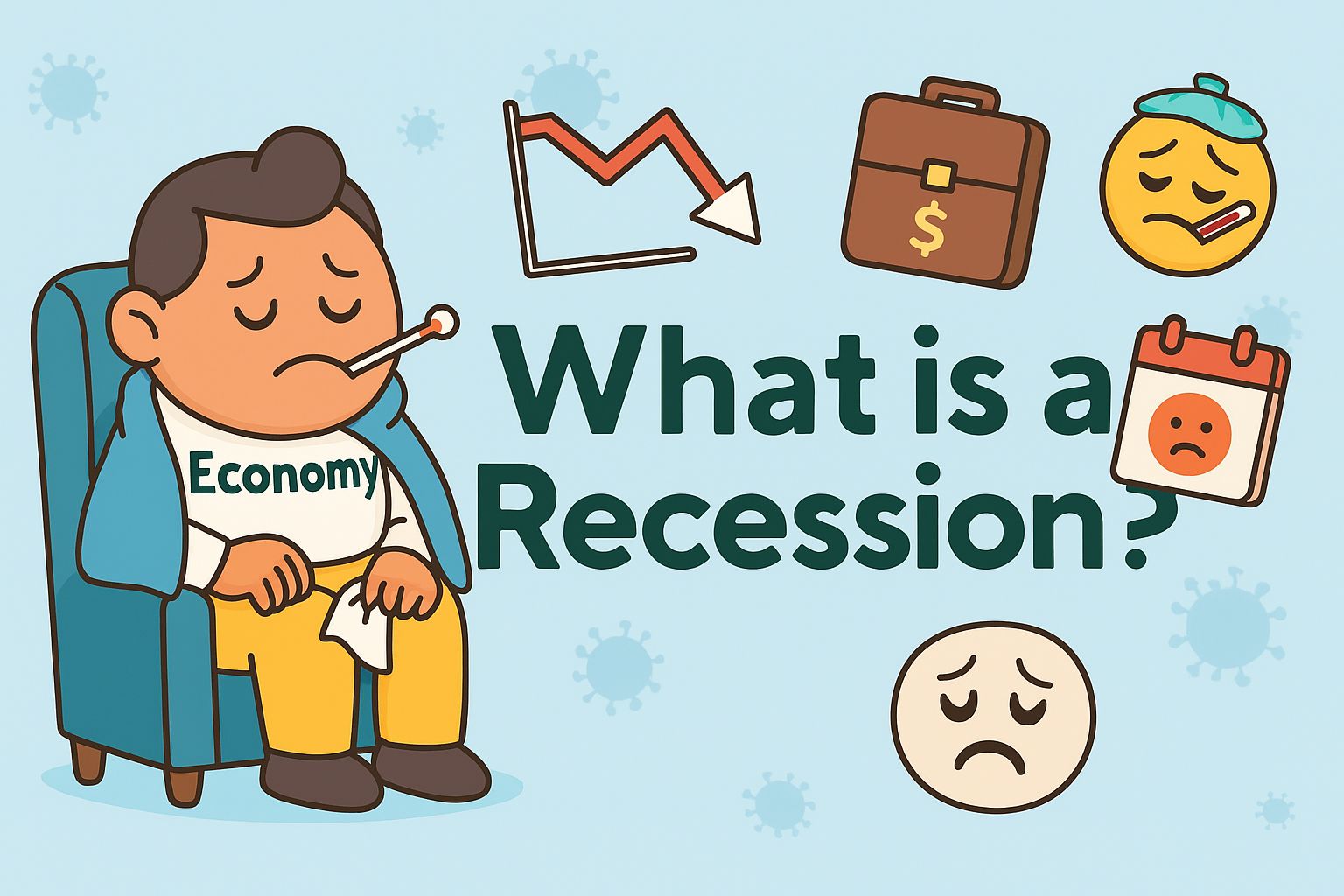🤒 Recession Explained: Is the Economy Catching a Cold?
Ever wondered why people say the economy is ‘sick’? If you’ve heard talk of recessions in the news, you might feel confused or worried. In this post, you’ll discover what a recession really means, how it works, and—most importantly—how it can impact your everyday finances.
🧍 The Economic Cold: A Simple Analogy
Imagine the economy as a person. When everything is healthy—jobs are plentiful, spending is strong, and businesses are thriving—it’s like feeling energetic and well.
But sometimes, things slow down. People lose jobs, businesses earn less, and spending drops. That’s the economy catching a cold! A recession is simply the economy’s way of feeling under the weather for a while.
📉 What Is a Recession?
A recession is a period when the economy shrinks instead of grows.
Experts usually define it as two consecutive quarters of declining GDP.
Learn more about GDP and economic indicators 📊
🤔 What Causes a Recession?
Several triggers can lead to a recession:
High interest rates that make borrowing harder
Loss of consumer confidence
Global events like pandemics or wars
Explore historical recession causes 🕵️
⏳ How Long Do Recessions Last?
Most recessions last from a few months to a couple of years.
Recovery depends on:
Government policy
Consumer behavior
Global conditions
💰 Why This Matters to You
Recessions aren’t just headlines—they affect your daily life.
Job Security:
Companies may lay off workers.
👉 Action: Update your resume and build your emergency fund.
Investments:
Markets often drop.
👉 Action: Review your long-term strategy and avoid panic selling.
Debt:
Interest rates can rise.
👉 Action: Pay down high-interest debt when possible.
Saving:
People spend less and save more.
👉 Action: Audit your budget and cut non-essentials.
🤓 Common Questions (FAQ)
Q: Is a recession the same as a depression?
A: No. A depression is deeper and longer.
Q: Can recessions be predicted?
A: Economists watch GDP, unemployment, and spending—but predictions aren’t perfect.
Q: What should I do during a recession?
A: Save more, reduce debt, and sharpen your job skills.
✅ Your Takeaway
A recession is like the economy catching a cold—uncomfortable, but usually temporary.
By understanding what’s happening and taking smart steps, you can protect your finances and come out even stronger.
💡 Ready to take control?
👉 Download the Recession Survival Checklist
👉 Subscribe for more financial insights
🧘 Minimalist Layout: Clean, Calm, and Focused
Title: What Is a Recession?
URL: EconMike.com/what-is-recession
Recession Explained
If you’ve heard talk of recessions in the news, you might feel confused or worried.
This post explains what a recession is, how it works, and how it affects your finances.
The Economic Cold
Think of the economy as a person.
When healthy, jobs are plentiful and spending is strong.
When sick, things slow down—people lose jobs, businesses earn less, and spending drops.
That’s a recession: the economy under the weather.
What Is a Recession?
A recession is when the economy shrinks for two quarters in a row.
GDP declines, and growth stalls.
What Causes It?
Recessions can be triggered by:
High interest rates
Loss of consumer confidence
Global disruptions
How Long Does It Last?
Most recessions last months to a few years.
Recovery depends on policy, behavior, and global events.
Why It Matters
Job Security
Layoffs may happen.
→ Update your resume
Investments
Markets may drop.
→ Think long-term
Debt
Rates may rise.
→ Pay down high-interest debt
Saving
Spending slows.
→ Review your budget
FAQ
Is a recession the same as a depression?
No. Depressions are deeper and longer.
Can recessions be predicted?
Not always. Economists track trends, but forecasts vary.
What should I do?
Save, reduce debt, and improve your skills.
Final Thought
A recession is like a cold—uncomfortable, but temporary.
Smart choices can help you stay strong and recover well.

